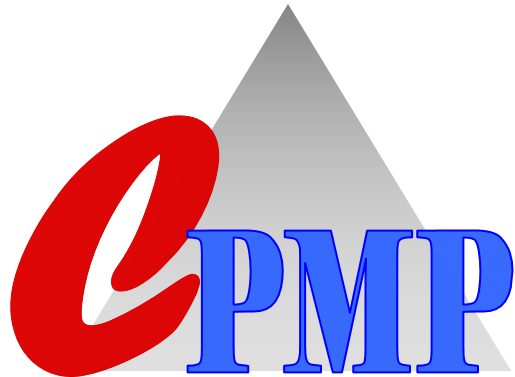
HR Interview Questions: Preparing for Your Interview
The interview stage is your chance to make a good first impression, explain the value of your skills and experience and find out more about the company. For human resources professionals, interviews are especially important because you will be able to showcase your interpersonal and communication skills. Knowing some questions you can expect to be asked during an HR interview can help you be more prepared. In this article, we list common questions asked during HR interviews and provide some example answers to help you craft your own.
Why are HR interview questions important?
It is important to ask HR professionals the right interview questions as it helps narrow down the large pool of candidates to produce the right applicant. This is your chance to prove that you have the right skills and experience to excel in the role. As a candidate being interviewed by an HR professional, you should possess excellent communication skills. Answering questions well is a great way to showcase your capability in excelling at your prospective job.
General HR Interview Questions
Most interviews start out with some general questions that can help the interviewer get a sense of who you are as a person. Consider these HR interview questions:
-
Tell me about yourself.
-
Where did you go to school and what did you study?
-
What do you like to do outside of work?
-
What is a strength of yours and how do you use it?
-
What is a weakness of yours and what are you doing to improve it?
-
How do you deal with criticism?
-
Describe your responsibilities at your current job.
-
Where do you see yourself in 5, 10 and 15 years?
-
What do you like most about your company's culture?
-
What do you like least about your company's culture?
HR interview questions about experience and background
These HR interview questions can give you the chance to elaborate on the skills and experience you describe on your resume. It will showcase your strengths and how you are a good fit for the job and the company you're applying to:
-
What have you contributed to your current company in terms of culture?
-
What would you change about your company's culture?
-
What have you contributed in terms of strategic planning?
-
How do you stay organized?
-
What qualities do you think will make a great HR professional?
-
Tell about a time when you made a mistake. What did you do to fix it?
-
What is the biggest challenge facing you as an HR professional?
-
How would your coworkers describe you?
-
What do you like most about working in HR?
-
What do you like least about working in HR?
In-depth questions
These questions will be specific to the role and will give the interviewer a chance to understand your communication style and conflict-resolution skills:
-
How do you see your role as an HR professional?
-
What is your personal mission statement as an HR professional?
-
How would you describe your communication style?
-
How do you communicate with coworkers who have a different style than you?
-
If you are an HR manager, what is your management style?
-
How do you deal with conflict?
-
How do you deal with consistently difficult employees?
-
How will you advocate for employees?
-
Have you ever had to fire someone?
-
Have you had experience interviewing job applicants?
-
Why do you want to work for this company?
-
What skills and experience do you have to offer?
-
From what you've heard, how would you describe this company's culture?
-
How would you determine the effectiveness of an HR department?
-
Have you been a mentor or had a mentor?
Showcase your skills with help from a resume expert
HR interview questions with sample answers
Here are some of the questions you may hear when being interviewed for an HR position, along with sample answers:
Discuss a time when an employee came to you with a complaint about his/her/their manager. How did you respond to them, and what did you do to fix the problem?
This HR interview question is generally asked to discuss a time when you demonstrated strong conflict resolution skills. As an HR professional, you might have to deal with complaints from employees about their colleagues. When you answer this question, start by explaining the conflict, what you did about it and what the result was. You can form your response using the STAR technique, which stands for Situation, Task, Action and Result.
Example: “An employee came to me to complain that his boss was being consistently rude to him and was judging his work unfairly. I asked him a series of questions about what his manager had said and asked to see emails between the two of them. I inquired about the unfair judgment of his work, and I brought my notes to my supervisor. From there we brought the manager in to speak to him about his behaviour, explaining what constitutes appropriate and inappropriate treatment of employees."
How would you describe the culture at your current company and what would you do to change it?
Organizational culture is important, and it's partially the job of HR to promote and shape it. Vibrant, positive company culture can attract new employees and retain older ones. Be prepared to honestly explain what the culture at your current company is like and if there is anything you would do to improve it.
Example: “My current company has an overall positive environment. People are generally nice to one another, and there is little conflict. However, a lot of people haven't gotten to know each other and they leave immediately after work without stopping to chat with coworkers. To encourage everyone to interact more, I'd like to hold small social events throughout the year. For example, I would suggest that since employees have ample time to go out during lunch and after work, small teams can take their colleagues out to lunch for their birthdays or celebrate individual or team milestones.”
What is it about our company's culture that attracts you?
This question is an opportunity to show what you know about the company and your enthusiasm. Make sure to find out about some of the company's policies, aspects of its culture and its history.
Example: “I love that at this company all executives have an open-door policy. I think that this leads to more ideas being shared between employees of all levels and that there are fewer conflicts between managers and employees. I believe that transparency and accessibility are two things that can make a company great.”
What is your view on job eliminations?
Layoffs and firing employees can be part of an HR professional's job as much as recruiting and onboarding. The thought and process that goes into making these decisions are of vital importance, and you should demonstrate that you understand this. Even if you haven't had to lay someone off before, you can discuss your views on it.
Example: “No one takes pleasure in firing someone, but sometimes it is a reality. I always advocate for instituting a performance improvement plan to give the employee a fair chance. I also ask whether that employee might perform better in a different department based on their skills or in a different team based on their work style.”
How do you assess the success of an HR department or initiative?
Part of your role as an HR professional may include instituting initiatives, and it's just as important to assess whether those initiatives have worked well. You or your company may already have a formalized process for doing so, or it may be something you do informally on your own. You can give examples of what you have done or what you would do to assess the success of an HR department initiative.
Example: “At my current company, the HR department decided to push for work-from-home Fridays. After a month, we asked employees how they liked this arrangement. We also asked managers how their jobs were affected by this and if productivity had decreased. Some employees and managers said that they weren't able to work as effectively because they forgot their laptop chargers, and they were only able to use their laptops for a few hours. From then on, we sent out reminder emails to everyone to bring their laptop chargers home with them on Thursdays if they planned to work from home that Friday.”
How would you change or add to your current HR department?
Many HR professionals are important figures for introducing change within a company. The role of human resources is to ensure employees are happy and satisfied in their daily work. If morale is down in the office, the company may rely on HR to help drive change.
Example: "My company currently does a great job at supporting extracurricular activities for employees. A lot of employees find that these activities are a great way to get to know people in other departments. However, one thing I would change is the range and type of activities that are available. Right now, employees can only join sports teams. Adding groups like book clubs or cooking classes could help get more individuals to participate."
